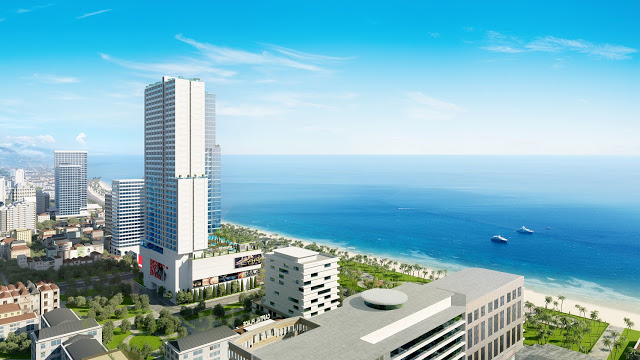
The Ministry of Construction has sent their report on the industry’s issue to the National Assembly, evaluating the real estate market in recent years. In the report, Minister of Construction Mr. Pham Hong Ha, said that since 2015, the coastal localities had allowed some businesses to invest in real estate tourism projects - including condotels and resort villas. Meanwhile, investment and development of office combined hotels (officetels) were allowed in bigger cities like Hanoi, HCMC and other provinces.
According to data of 71 real estate projects, whose basic designs have been evaluated by the Ministry of Construction since the beginning of 2015 to date, there are more than 25,600 condotel and officetel units mainly focused in Hanoi, HCMC and Danang. In addition, tens of thousands more condotel and officetel apartments has been verified and licensed by other localities.
The Ministry of Construction claims that many real estate resort projects have been licensed and thus, supply in this sector is large and diverse. However, they go on to to state that due to problems relating to the terms of contracts not being strict, clear, and transparent, has led to potential risks for both investors and buyers.
Experts are concerned about tourism real estate’s shocking growth and the potential negative outcomes of the hot condotel fever. One possible consequence could be conflicts between customers and investor about profit commitment of up to 10-12%.
Michael Piro, Managing Director of Indochina Capital Corporation, said that this is an impractical profit margin worldwide. Not to mention, condotel’s legal ownership is also another cause of conflict in the sales agreement between clients and investors. Lastly, the general public will also be affected when beautiful beaches are divided and blocked by major corporations’ buildings and resorts.
Realizing these facts, the Ministry of Construction have said that they will strictly control the permitting of new project investments, especially luxury real estates and resort projects such as villas or high-end apartments, in order to balance supply anddemand, as well as to avoid inventory surplus and market destabilization. This helps ensuring law compliance and investment efficiency, while simultaneously preventing profiteering behaviors, corruption, and loss of state’s property - especially in land use.
The Vietnam Association of Realtors also recommended that it is now time to stop new resort projects development. Focus should be placed on completing existing projects, and putting them into operation so to meet government and businesses’ initial objectives, which are creating infrastructure and accommodation supporting the development of tourism in Vietnam. Bringing high economic efficiency to all parties including investors, businesses and the country.
Nguyen Van Dinh, Vice President of the Vietnam Association of Realtors, emphasized: “Investors have collected the money, customers have paid their part, and bank credits are also involved. If investors ‘fall’ and cannot pay, banks will tighten credit and customers can lose everything. The bank ended up buying numerous unsellable condotel. Therefore, it is recommended to stop the development of resort property.”


















